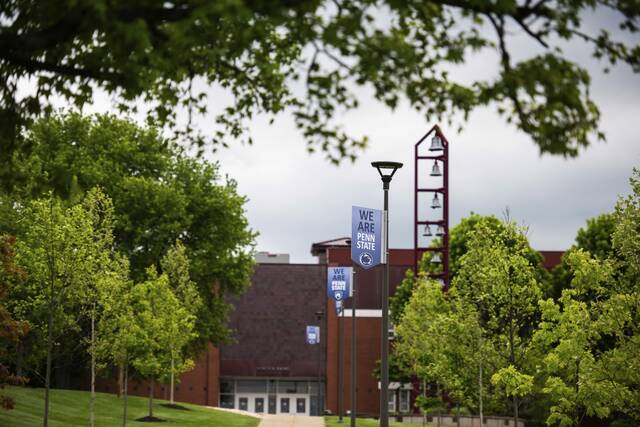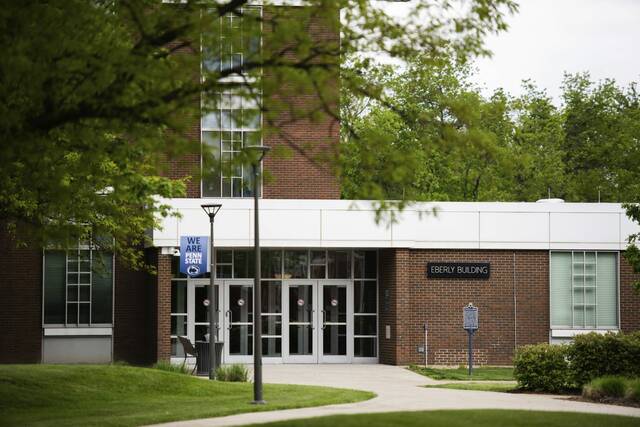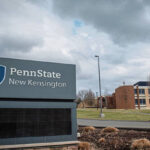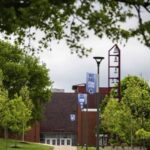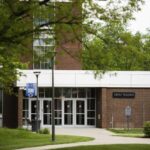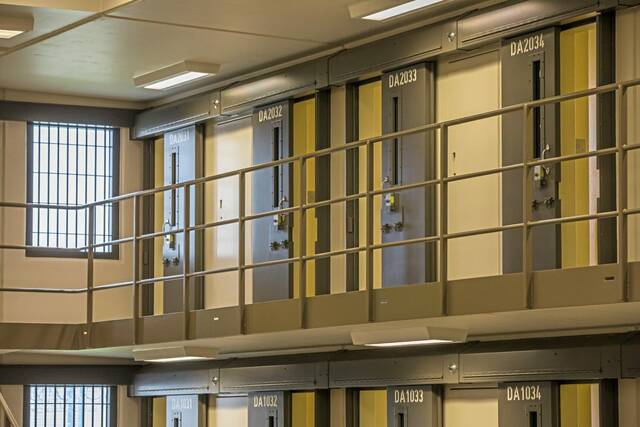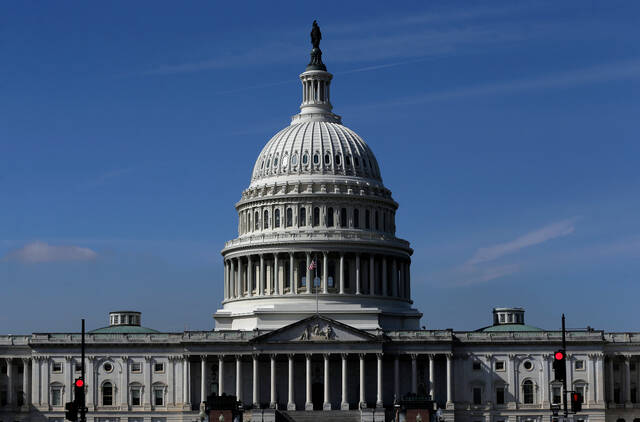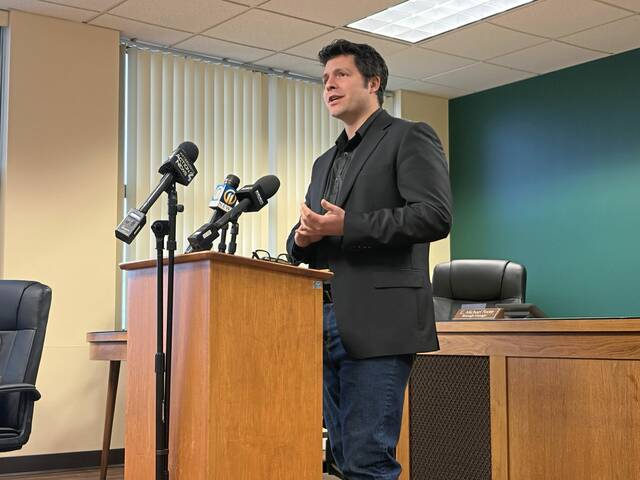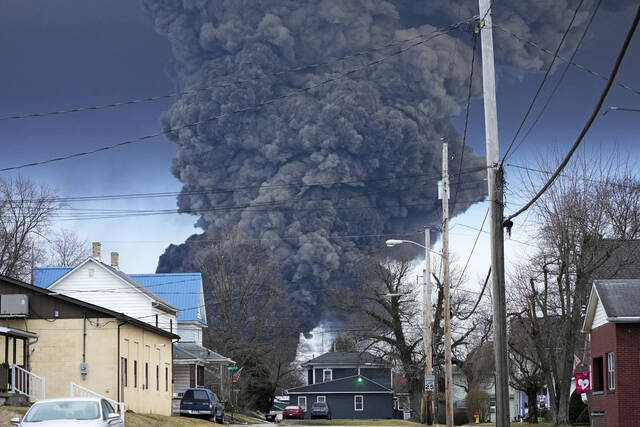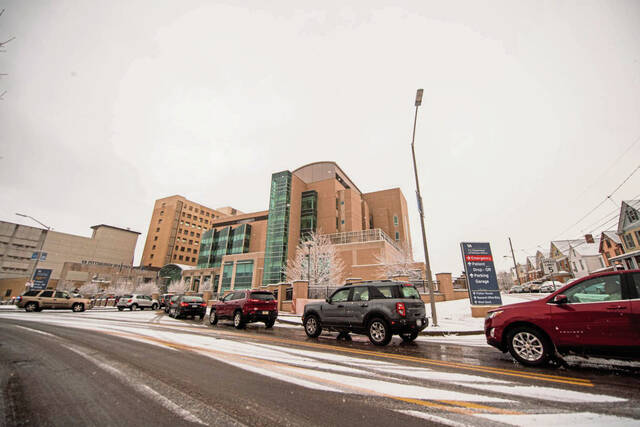Penelope Morrison hoped to retire one day from her job as an associate professor at Penn State New Kensington.
Now she has come to the realization that might not be possible after Penn State acknowledged this week that New Kensington is one of seven branch campuses recommended for closure.
“None of this comes as a surprise at all, per se, if you’ve been paying attention to higher education,” said Morrison, who has taught biobehavioral health at the Upper Burrell campus since 2016. “Penn State isn’t alone in its struggles. We’ve known for a while this is a possibility, but to see it in a more formalized format is heartbreaking.
“We’re grieving the loss of the community we all know and love.”
After the Penn State administration in February announced 12 of its branch campuses would be considered for closure, mainly because of declining enrollment and finances, the university released a report Tuesday to recommend the board of trustees close seven of them — DuBois, Fayette, Mont Alto, New Kensington, Shenango, Wilkes-Barre and York.
The board is scheduled to meet virtually in an executive session Thursday to review the plan. It will then schedule a public meeting to act on it.
No campus would close before the end of the 2026-27 school year.
“There hasn’t been any clear path for what is next,” Morrison said. “I think we all have questions and are curious what the path forward looks like.”
Premature decision, some trustees say
Asked Wednesday about his vote, trustee Anthony Lubrano said he would like more time to forge a path forward and reimagine potential closings.
“I want the opportunity to be thoughtful and deliberative, and I don’t think we’ve had sufficient opportunity to be that,” said Lubrano, who is serving his fourth term since 2012 as an alumni-elected trustee on the board.
“I’ve suggested the timeline should be out a year, and we should involve the communities of those campuses that we might be inclined to close, and over that course of the year, work closely with them to reimagine. But give them that opportunity to come to us and be collaborative with us.”
If Lubrano was assessing the situation from a purely business perspective, he said, he might have a different outlook. But he believes trustees have a moral responsibility to provide an affordable education across the commonwealth — including rural areas.
“We only received the information from (President) Neeli (Bendapudi) very recently and, as has been stated publicly, we had a conversation on Friday. We have another conversation tomorrow. After that, I can’t tell you what the plan is,” he said. “We hadn’t received the report from her until our last meeting. … It’s all recent — it’s never been an agenda item for us to address.”
Last Friday’s conversation was held behind closed doors, as Thursday’s session will be, according to Lubrano.
“I’d really like to see this done in public,” he said. “… I think the taxpayers have a right to hear what we have to say.”
For Alice Pope, Penn State trustee emerita, the reported elimination of numerous campuses is premature.
“We can’t be cutting these campuses out like they’re unprofitable fast-food franchises,” she said. “We really owe it to our histories and next generations to make our absolute best effort to reimagine the way we deliver education to the commonwealth.
“I think it’s wrong.”
Pope, 68, of Tucson, Ariz., who earned three degrees at Penn State, served on the board of trustees from 2014 to 2023. As an emerita trustee, she’s a nonvoting member not privy to executive sessions, but she still provides input on board committees and during public meetings.
“All these discussions about the Commonwealth Campuses have been done in private,” she said. “There are many individuals within the university community who have deep questions and concerns about not only the outcome, which is campus closures, but especially about the process.”
People are wondering how deeply alternatives to closure were explored, and how the campuses were selected, according to Pope. But the public may never know, she said.
“Hearing from many of the campuses … many of these people feel like they have not had a seat at the table,” she said. “The university as a whole and the campuses and the communities could together find the way for our land-grant mission to continue to be served.”
With 19 Commonwealth Campuses and its main campus at University Park, Penn State is an economic engine for Pennsylvania as a whole, Pope said.
“Certainly Penn State is a major employer in many of these small communities where we have campuses, economic and educational impact,” she said. “Almost every Pennsylvanian has access to a campus within commuting range.
“The idea that we could close a campus and just educate those students elsewhere really falls short of that because many people cannot pull up their roots and move to another area. … People who are commuting or getting education while they’re working or raising a family cannot easily — probably not at all — shift their coursework to another campus.”
Flawed report?
Morrison thinks New Kensington’s section of the report leads to more questions than answers. It states New Kensington has “struggled to maintain relevance and scale” in the Pittsburgh region’s competitive higher-education environment.
The report said New Kensington’s enrollment is one of the lowest of branch campuses and, despite efforts to the contrary, has been unable to distinguish a distinct, innovative role for itself.
“I get where they’re coming from. But I think it reflects a lack of in-depth understanding of the campuses and their potential and the communities they’re situated in.” Morrison said.
Julio Palma, a chemistry professor at Penn State Fayette, thinks the rationale for his campus’ closure actually makes a case for it to remain open.
“This campus, even if enrollments are low, you can see it’s a vibrant campus,” Palma said. “We bring people who live in the area that aren’t just going to go to other campuses.”
The report said Fayette’s enrollment, demographic and operational challenges have made it unsustainable. Fayette has seen a 43% enrollment decline over the past decade.
“The problem is a lack of support with the Commonwealth Campuses,” Palma said. “When we don’t have institutional, robust support, this is what happens, and it’s reflected in enrollment.”
The report said it also took into consideration Fayette being the only four-year college in that county and it being named in honor of the Eberly family for its longtime support.
Andrea Adolph, an English professor at New Kensington, thinks the report was written to justify administrators’ decision.
The report said that New Kensington has programming that nearby colleges have. But Penn State set it up that way, she said, as consortiums were set up among nearby Commonwealth Campuses to share programming.
“There’s a lot of narratives that isn’t captured, a lot of history that isn’t captured, and it just didn’t add up,” Adolph said.
Others spared
While some areas of the state were upset over the report, others felt relief.
The report recommended Penn State’s Beaver and Greater Allegheny campuses remain open.
It identifies Beaver’s proximity to Pittsburgh and the airport as making the campus a hub for Western Pennsylvania. Investing in Greater Allegheny, which is near McKeesport, also could advance Penn State’s visibility in Western Pennsylvania, the report said.
Programming at Beaver, such as an incoming animal diagnostic lab, and Greater Allegheny, with Penn State’s only bachelor’s degree program in social work, also serve critical needs in the region, the report said.
McKeesport Mayor Michael Cherepko was happy to hear Greater Allegheny would remain open. He noted that the city and other regional agencies and organizations worked tirelessly to communicate the campus’ need in the community.
“I know firsthand the value of having a regional campus that’s accessible to students in the Mon Valley,” Cherepko said. “I received a first-class education from Penn State University, and that began here at the McKeesport campus.
“Today’s students will continue to have access to a wealth of Penn State programs from right here in their backyard, whether they stay home to pursue their degree or use this campus as the first step in their journey to University Park.”
Beaver County Commissioner Jack Manning said the county leaders always have believed there was a compelling case for continued operations at the Beaver campus.
Those include the campus having representation on Beaver County’s corporation for economic development, chamber of commerce, Job Training for Beaver County and CareerLink, he said. Beaver is also home to the regional Penn State Extension staff and will soon feature an expanded agriculture curriculum and the new Animal Diagnostic Lab-West.
Penn State Beaver, the Community College of Beaver County and Geneva College work well together to strengthen K-12 educational efforts in the county, Manning said.
“In the big picture of economic development and quality of life, it’s always been clear to us that the Penn State Beaver campus’ impact and influence goes well beyond their enrollment numbers,” Manning said.
What the future holds?
New Kensington made strides to improve students’ educational opportunities and the community through efforts like The Corner Launchbox, Digital Foundry and ABC Create, but time ran out before it could fully see the return on its investments, said Kevin Snider, who was chancellor of the Upper Burrell campus from 2008 to 2024.
“It’s gut-wrenching,” Snider said. “The work we were doing at New Kensington was to prepare for a situation like this. We thought by creating opportunity and building manufacturing that is leading to investments in the area would be something that could help this campus.
“It’s disappointing. We ran out of time. We were seeing things heading in the right direction.”
Professors aren’t aware of Penn State’s plans for them other than a basic FAQ page on the university’s website, said Adolph, the English professor at New Kensington.
Students, faculty and staff are exhausted, and mentally and emotionally drained at Penn State New Kensington, said Morrison, the biobehavioral health professor at New Kensington.
“We are there for the students, that’s our No. 1 priority and it’s always been that way at the campus,” Morrison said. “A lot of the reason why we have been so active and vocal is because of our students. We care about the mission on our campus.
“I don’t know how we’re going to do it, but I do believe we will power through.
”If we only have two more years, I do believe Penn State New Kensington will give the students there the best two years they can possibly have.”



